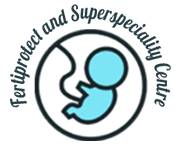Infertility in women can be influenced by a variety of factors, which can be broadly categorized into lifestyle, medical, environmental, and genetic factors. Here are some of the main factors that increase the risk of infertility in women:
Lifestyle Factors
- Age: Fertility naturally declines with age, especially after 35.
- Weight: Being significantly overweight or underweight can affect ovulation.
- Smoking: Tobacco use can damage the cervix and fallopian tubes, affect egg quality, and increase the risk of miscarriage and ectopic pregnancy.
- Alcohol and Drug Use: Excessive alcohol consumption and the use of recreational drugs can impair fertility.
- Diet: Poor nutrition and extreme diets can affect ovulation and hormonal balance.
- Exercise: Both excessive exercise and a sedentary lifestyle can impact fertility.
Medical Factors
- Ovulation Disorders: Conditions like polycystic ovary syndrome (PCOS) and hypothalamic dysfunction can affect ovulation.
- Uterine or Cervical Abnormalities: Issues such as polyps, fibroids, and abnormalities of the uterus or cervix can interfere with implantation or cause miscarriages.
- Fallopian Tube Damage or Blockage: Often caused by pelvic inflammatory disease (PID) or endometriosis.
- Endometriosis: A condition where tissue similar to the lining inside the uterus grows outside of it, causing inflammation and scarring.
- Primary Ovarian Insufficiency (POI): Early menopause, where the ovaries fail before the age of 40.
- Thyroid Problems: Both hyperthyroidism and hypothyroidism can interfere with the menstrual cycle and ovulation.
- Chronic Conditions: Conditions like diabetes, autoimmune diseases, and celiac disease can affect fertility.
- Infections: Sexually transmitted infections (STIs) like chlamydia and gonorrhea can damage the fallopian tubes.
Environmental Factors
- Exposure to Toxins: Environmental pollutants, chemicals, and radiation can affect reproductive health.
- Occupational Hazards: Certain jobs involving heavy metals, solvents, or pesticides can increase the risk of infertility.
- Heat: Prolonged exposure to high temperatures, such as from hot tubs or saunas, can affect ovulation.
Genetic Factors
- Inherited Disorders: Certain genetic conditions, such as Turner syndrome, can affect fertility.
- Family History: A family history of early menopause or other fertility-related conditions can indicate a higher risk.
Other Factors
- Stress: High levels of stress can affect hormonal balance and ovulation.
- Medications: Certain medications, such as those used for chemotherapy, can affect fertility.
Addressing these factors through lifestyle changes, medical treatment, and managing underlying health conditions can help improve fertility. If you suspect infertility issues, consulting Fertiprotect and Superspeciality Center’s fertility specialist is recommended for a thorough evaluation and personalized treatment plan.
Dr. Archana R Salve, a distinguished Obstetrician, Infertility Specialist, and Reproductive Endocrinologist with an illustrious 19 years of experience in her field. Dedicated to enhancing women’s health and fertility, Dr. Archana R Salve is renowned for her expertise and compassionate care.

